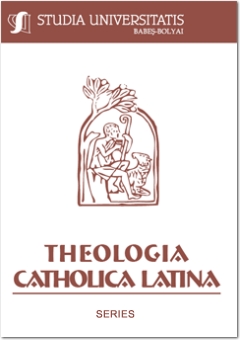RELIGIOUS BELIEF AND BURNOUT
RELIGIOUS BELIEF AND BURNOUT
Author(s): Bernadett Kovács, Beáta Erika NagySubject(s): Christian Theology and Religion
Published by: Studia Universitatis Babes-Bolyai
Keywords: religious belief; burnout; helping syndrome.
Summary/Abstract: Our article presents the results of a survey wherein we examined whether the monastic nurses, who are unequivocally religious people, are as burned out during their helping service as the non-religious nurses. Our conclusion is based on the results of two questionnaires, the Post-Critical Belief Scale (PCBS) and the Maslach Burnout Inventory (MBI). The sample included female nurses who have been working beside sick-bed for at least 5 years (N=94). We examined the impact of factors such as age and piety on burnout. To our surprise, statistical results showed that the rate of burnout was not directly proportional to the number of years spent at work. Age as a dependent variable explained burnout only to a minimal extent. After that we examined the effect of piety on burnout. However, it cannot be described with one number, it is intangible, therefore we based our survey on three aspects. These aspects of piety were used to examine the followings: the extent of self-estimated piety, going to church, and the Post-Critical Belief Scale. The measured values based on these aspects show linear connection, reciprocal ratio with the burnout. To follow from this, we can say that religious belief is a protective factor as opposed to the burnout in our sample. The results indicated that burnout is the lowest in the community of the monastic nurses. Burnout of those nurses who work in ecclesiastical institutions is higher than that of monastic nurses and the rate of burnout is the highest among the nurses who work in state-owned hospitals. Consequently, religious belief has a crucial role in the avoidance of burnout.
Journal: Studia Universitatis Babes-Bolyai - Theologia Catholica Latina
- Issue Year: 2010
- Issue No: 2
- Page Range: 3-24
- Page Count: 22
- Language: English

